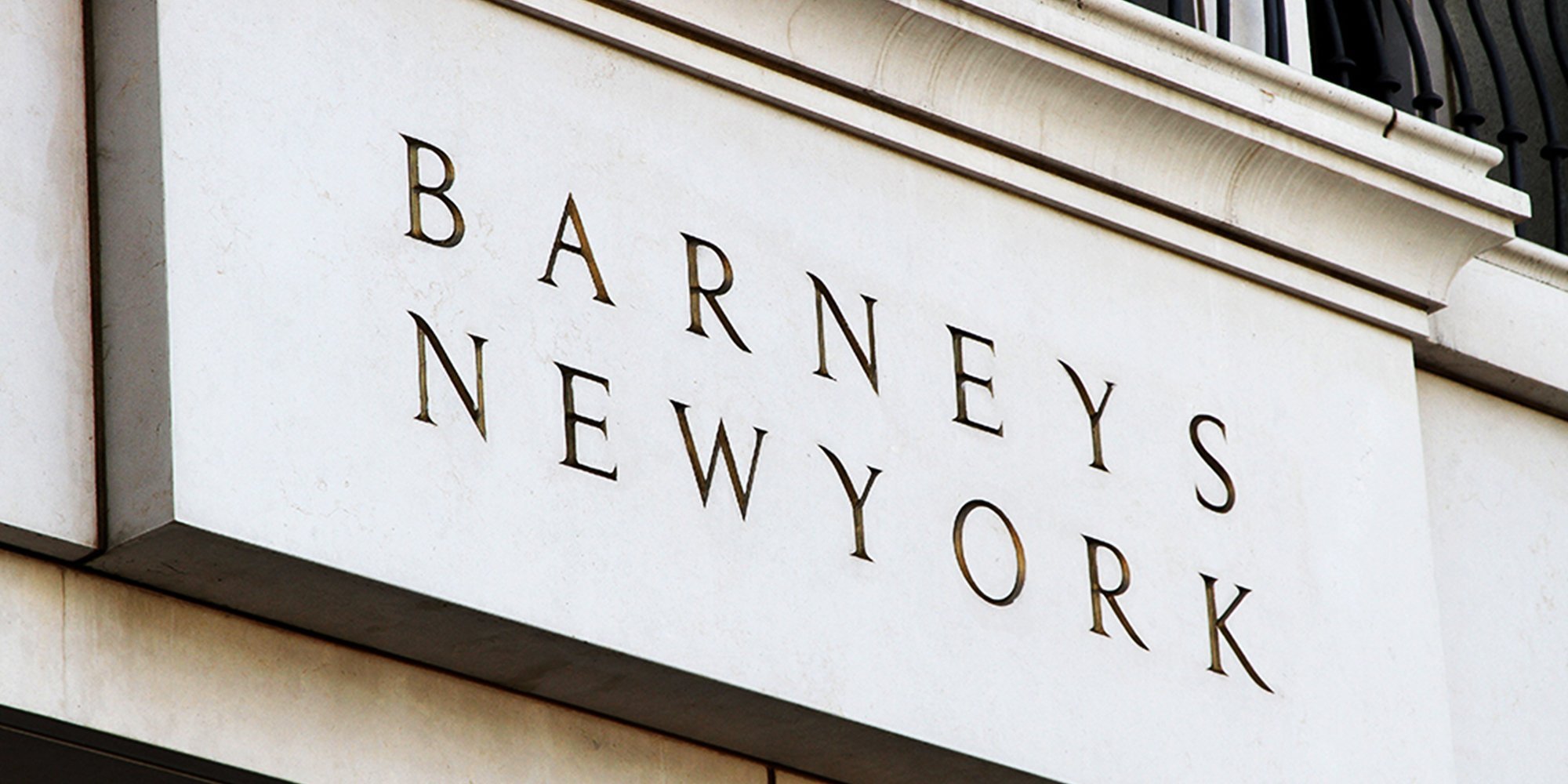
Has Any Retailer Replaced Barneys New York As The Go-To Beauty Brand Builder?
In a Wall Street Journal article that ran earlier this month, reporter Chavie Lieber wrote, “Barneys New York was always more than a department store. With a flagship on Madison Avenue and a dozen more locations across the U.S., it was a beacon of luxury and cool.” After the closure of its stores in 2020, Barneys New York transformed from a beacon of luxury and cool into a licensed goods enterprise with a Forever 21 collaboration that launched Sept. 7.
For many indie beauty brands, the disappearance of Barneys stores has wiped away an essential launchpad. Since it happened, there’s been a constant conversation among them about whether another retailer has or could take its place as a coveted indie beauty discovery destination and brand builder. The publication Glossy picked up on that conversation in a recent piece by journalist Liz Flora delving into indie luxury brands’ search for the “ideal e-tailer launchpad.”
For the latest edition of our ongoing series posing questions relevant to indie beauty, we continue the conversation by asking 35 beauty entrepreneurs and executives the following questions: What retailer or e-tailer do you think is an indie beauty brand launchpad today either from the perspective of your brand or you as a consumer? Do you think it’s equivalent to the Barneys of beauty now? If not, is there anything that is?
- MICHAEL ENGERT Co-Founder and President, Very Good Light
For us, we've been fortunate to have a few on our side. Thirteen Lune X J.C. Penney is an amazing launchpad for early-stage brands from underrepresented communities. Soko Glam, with their roots in K-Beauty, has an incredibly informed customer who we've learned a lot from.
And lastly, Ulta, who have been so supportive of our brand and mission, have given us the confidence to think we can compete with the largest brands in the world, and that validation has meant the world. It really has given our very small team wings.
We should also give a shoutout to FirstLook VC, who connect early-stage consumer brands with investors thru a subscription box. It would be impossible to be successful in retail without financial support, and all indie beauty brands would likely benefit from their counsel and support.
- GERARD CAMME President and CEO, Element Eight
When Barneys did Barneys, they were in a class by themselves. It’s a different market today. The appeal of indie brands is evident, and as a result, there are many effective players.
As far as luxe indie brands go, Nordstrom is doing a great job specifically in the advanced technology skincare segment. Bluemercury as well is attracting interesting brands with their Cache strategy.
And nobody tells a brand story better than Sephora. Their digital prowess is exemplary. From a pure player perspective, Violet Grey is solid and speaks directly to the luxe indie customer, while Moda Operandi is asserting their expertise and digitally offering an element of brand experience.
There are many options today. It’s no wonder indie brands have been outperforming the market consistently for the last 10-plus years.
- Ada Polla CEO, Alchimie Forever
Honestly, I don’t know. In the past, I would have said Bluemercury, Credo, Sephora, Henri Bendel, but today I have no clue and even less of a clue in online.
- ELENA FRANKEL Co-Founder, Flyte.70
From a brand standpoint, Beautyhabit, Shen Beauty, Cult Beauty and Violet Grey continue to have a strong presence online. From a consumer perspective, I prefer to shop in niche indie boutiques, which is why we just opened one for Flyte.70, where we also carry several other independent brands.
[My co-founder] Carolyn [Barber] and I have craved a quieter and more personalized way of shopping for beauty products for a long time, and it’s somewhat hard to find indie stores that do it right, but they do exist: Get Luminous, The Indie Shelf and Knockout Beauty are just a few we follow.
- Julian Addo Founder and CEO, Adwoa Beauty
I am not too certain that one retailer is right for every brand in today's climate, no matter the niche. It depends so much on the brand, their price point and their target audience. People are shopping where they feel comfortable and that isn't necessarily at one retailer.
The Targets, Ultas and Sephoras of the world still command consumer attention, but I am seeing new habits post-COVID. Amazon is also a key player in beauty from an e-tailer perspective. I would encourage brands to perform various channel strategy reports to gain perspective into the potential and cost for each retailer to ensure success.
- APRIL GARGIULO Founder, Vintner's Daughter
Retailers don't have the same brand-building muscle as they once did, but are still critical in creating that all-important awareness surround sound.
- Priscila Fadul Founder, Lendava
Moda Operandi undoubtedly serves as a launchpad for Lendava and other unique, elevated indie beauty brands in today's market. From both our brand's perspective and my own as a consumer, Moda Operandi's distinctive approach to curating and introducing independent beauty labels stands out.
As a brand, we deeply appreciate Moda Operandi's commitment to providing a platform that champions emerging beauty brands. Their discerning eye for selecting unique and innovative products aligns perfectly with our values of promoting effectiveness and creativity within the beauty industry. Lendava offers a unique and curated selection of highly effective, streamlined, and responsible products, and our focus on innovation and proven science makes Lendava an ideal brand to be discovered at an e-tailer like Moda Operandi.
Moreover, their strong reputation for quality and exclusivity enhances the credibility of the brands they feature, benefiting our brand when showcased among their carefully curated selections.
From a consumer standpoint, Moda Operandi's platform is a treasure trove of exciting new beauty discoveries. Their curation offers consumers like me access to a thoughtfully selected array of indie beauty products that might otherwise remain hidden in the vast beauty landscape. This platform has become a trusted source for trying out novel and niche beauty offerings, adding excitement to the shopping experience.
Furthermore, Moda Operandi's commitment to seamless shopping and excellent customer service enhances overall consumer satisfaction. Their ability to showcase indie beauty brands alongside established fashion and luxury labels creates a unique shopping destination appealing to a broad spectrum of consumers. All of these factors make Moda Operandi a platform I highly regard and appreciate!
- ELINA WANG Co-Founder and CEO, ESW Beauty
Anthropologie and Free People are two retailers that I believe are strong launchpads for indie beauty brands today. They love to partner and give opportunities to beauty brands at all growth levels. They have great brand loyalty with their own customers, which has allowed these up-and-coming beauty brands to grow their brand awareness.
In today's day in age, consumers love to try new products and brands from companies they trust. Anthropologie and Free People are known for bringing in diverse, innovative brands with a newness factor. I am very grateful for them as they were one of the first retailers to bring in ESW Beauty sheet masks.
- CEDAR CARTER CEO, The Good Patch
There are so many ways to launch a brand now that I don’t think there’s a defined playbook anymore, which creates a lot of flexibility and opportunity for emerging brands.
We initially launched The Good Patch through a variety of highly curated independent boutiques across the nation, which are loved and trusted by their local consumers. That was a great initial launchpad for us and brought a lot of credibility as we expanded into more mainstream distribution.
Now, many bigger retailers such as Target and Ulta are putting a lot of resources into highlighting emerging brands and can really help accelerate growth.
- AMANDA MCINTOSH Founder, Take My Face Off
I love what’s going on at Thirteen Lune, and of course, Credo is always a leader.
- AMANDA SCHULER Founder, Ember Wellness
At the outset of a new brand's growth, I think indie retailers with a strong community and point of view like CAP Beauty, SLFMKR, Cedar & Hyde and Beauty Heroes are a perfect launchpad.
These tend to be more localized retailers, but also with a strong web presence and tend to have highly curated assortments, so what is on the shelf is considered highly vetted from a consumer perspective, the trust is baked in. From a brand perspective, they tend to be easier to access at the outset, fun to work with and more open to trying new brands and concepts.
I also think the emerging experiential treatment retailers like Formula Fig are great launchpads for new and more established brands looking to build and/or grow their awareness. In the case of Ember Wellness, Formula Fig carries three of our products and uses them in treatment, allowing customers to experience the product firsthand.
As an indie brand continues to scale and refine its offering, retailers like The Detox Market and Credo begin to make a lot of sense and eventually even Sephora and Ulta, but these things take time, and without enough brand awareness pulling customers in, getting into these stores too early could end up backfiring.
- DINA ROSENBLOOM CMO, Hairstory
In the luxury arena, Neiman Marcus continues to lead the market. They have expanded their beauty assortment and categories, particularly in fragrance and haircare, and have brought in brands that other luxury department stores weren't carrying, including some interesting indie brands that capture a younger, premium customer. Nordstrom has began to follow suit, and I’m sure others will begin do the same.
Credo is also a great starting point for clean indie brands, especially for those just dipping their toe into retail. Consumer interest in better-for-you brands isn’t slowing down, and Credo was first to have the clean list well before clean was a trend. They have stuck with their ethos and are bringing in some of what I think are the best indie brands that haven't yet touched other stores.
Sephora is another retailer to watch, especially as they just amped up their haircare category. I have been impressed with how they're investing in indie brands, particularly brands that are breaking boundaries across genders and generations. I also think Goop continues to bring in really interesting brands, particularly in the luxury space.
Barneys New York was an anomaly, and I don't think you can equate it to any other retailer. Plus, Barneys didn't play in every beauty category. They acted as a testing ground and led with fragrance and color. I previously spent many years in the fragrance industry, and there was no question that Barneys was where you wanted to be if you were a niche brand. Now, the niche category is a big part of the industry and lifestyle as a whole, so I don't know that you can compare stores today to what Barneys was at the time.
Barneys left such a gaping hole when they closed, and I don’t believe that other retailers have been able to recreate the unique experience and launchpad that Barneys provided. It was a place for discovery, where you could talk to a beauty advisor who was incredibly knowledgeable about each of the brands, some of which you already knew, and many of which you didn’t. Things are so much more digital and automated now, and because of this, retailers are struggling to draw customers in the way Barneys once did.
- SANDRA VELASQUEZ Founder, Nopalera
I think the real launchpad is your own brand. Retailers are there to provide scale and footprint for reach, but ultimately a brand has to stand on its own.
- ALEX MCINTOSH Co-Founder and CEO, Thrive Natural Care
Amazon has been a great channel for us to connect with new customers. It's an easy place for consumers to compare products, and Amazon has been working hard to develop opportunities for brands like Thrive to tell our story and to help customers find us.
We also love Grove Collaborative. It's a great place for customers who want natural and sustainable products. Grove has worked hard to win the trust of its customers, bringing them a curated group of brands that are committed to natural and safe ingredients brought to customers in a sustainable and responsible way.
- DEBI THEIS President, Henry Rose
As a longtime New Yorker, there's truly nothing that can quite match the iconic shopping experience and level of brand discovery that Barneys provided. Since it closed, there remains a noticeable void of a similar retail destination in the market.
In today's landscape, Credo stands out as a go-to retailer to uncover emerging better-for-you brands before they gain widespread recognition. For more established indie brands, Sephora remains an important destination for exploration and discovery.
- ERIC DELAPENHA Founder, Strands Hair Care And The Hair Lab By Strands
We have had a very positive experience in working with Walmart Start to launch The Hair Lab in over 2,500 stores last year. They have a keen understanding of what indie beauty brands need to be successful in launching across their vast distribution footprint.
This means helping new brands align on omni launch timelines, understanding capital needs, what first-in-class store execution looks like and educating new brand teams on Walmart’s systems to get them up to speed quickly.
Walmart has been a great partner to launch The Hair Lab with, and now we’re in active discussions with additional channel partners looking to innovate with customization in retail.
- JESSICA MONZALVO Founder, SBJ Esntls
In the current landscape of indie beauty brand launchpads, we observe several retailers and e-tailers that play a pivotal role in showcasing and supporting emerging brands. One platform that stands out, both from the perspective of SBJ Esntls and as a consumer, is Thirteen Lune
Thirteen Lune has established itself as a significant launchpad for indie beauty brands. They have a dedicated space on their platform that highlights brands that prioritize clean and sustainable ingredients. This section often features independent, innovative brands that resonate with conscious consumers seeking natural and ethical beauty options.
Another notable platform for indie beauty brands is The RealReal, which has gained recognition for its curated selection of luxury beauty products, including offerings from emerging and independent brands. While The RealReal primarily focuses on luxury fashion, its expansion into beauty provides an additional avenue for indie brands to reach a discerning and upscale audience.
In recent times, there has been a significant shift in consumer shopping behavior. Shoppers are increasingly seeking out and supporting small businesses that carry indie brands, creating a sense of community. This trend reflects a desire for more personalized, unique and community-driven shopping experiences. Indie brands, like SBJ Esntls, align perfectly with this shift as they often emphasize inclusivity, authenticity and a connection to their customer base.
Today, there is a recognition that there is nothing quite like Barneys anymore. The customer landscape has evolved significantly, largely influenced by the rise of the internet and e-commerce. Customers now have access to a vast array of products, brands and information at their fingertips.
- GWEN SALAKAIA Co-Founder, Senself
We closely monitor the latest developments in the beauty retail sector and, unfortunately, are seeing many small retailers shuttering their doors. Consequently, only two types of players stay as catalysts for indie brands, depending on their positioning.
On one side, there is Sephora and Target to scale and give an immediate boost to brands that are ready to grow fast. They both have a huge presence, hundreds of doors and are convenient to shop in brick-and-mortar and online.
On the other side for more niche, premium brands, we have Neiman Marcus, Bluemercury and Violet Grey, whose quality and value gives indie brands the possibility to reach their target audience with confidence and credibility. Being placed amongst very well-curated and notable skincare lines is a great way to position a brand and validate its worthiness for consumers who expect the highest quality not only in formulas, but in packaging and uniqueness.
Oversaturation in the market with new brands, new products popping every week leaves consumers exhausted and confused when they try to make smart choices. It makes sense that they turn to reputable retailers for a quick choice. They trust their curated assortments, especially for premium and luxury brands. They don’t want to pay high prices for skincare that has not been validated by beauty industry experts or major retailers.
- JAMES PARK President, Herbivore Botanicals
Sephora is still the place for discovery, according to our research. Across all categories, the Sephora merchants have consistently discovered and incubated new and upcoming brands.
Within clean, conscious beauty, Credo leads the way. Our consumer research showed that this retailer is trusted by the conscious, wellness-focused consumer. As Credo expands their brick-and-mortar footprint, Credo will continue to lead the way for discovery.
- ERIN KLEINBERG Founder, Sidia
In my opinion, Credo is the indie brand launchpad. They just know how to connect with and believe in early-stage beauty founders and have built a platform that supports them in their journey.
Inside the industry, it is well-known that the biggies are shopping around Credo to sus out the latest and greatest brands that they will partner with. They have launched numerous household name brands and remain the authority for clean standards in beauty in the U.S.
I also feel so at home when I enter a Credo. The staff are so warm, helpful and make you feel special, which to me adds to the allure of the experience as a whole. This position as the industry's official launchpad is only cementing further under the direction of their new CEO, and their expansion plans that involve elevating the in-store design and experience.
- YVE-CAR MOMPEROUSSE Co-Founder and CEO, Kreyol Essence
I think Ulta Beauty has the best system for working with indie brands and the consumer gets to find high/low indie brands in addition to legacy fan favorites.
With consumers being more mindful of finding the balance between efficacy, accessibility and affordability, nontraditional beauty destinations are absolutely becoming a recipe for success for newer or indie beauty brands.
Masstige-driven locations that act as a one-stop-shop like drugstores, supercenters and grocery have proven super successful for us in capturing new customers. There’s a more curated assortment of brands, making it easier for us to fill a specific niche or gap without getting lost in the shuffle of the hundreds of others available in traditional beauty retailers.
- KRISTIN MOORE Founder and Creative Director, Satva Botanicals
Although times have certainly changed since the Barneys days and the pandemic, there are certainly still some really great launchpads out there for indie beauty brands.
As a consumer and as a brand founder, I always look to Detox Market, CAP Beauty and Credo as guiding stars in this arena. I appreciate the work they’ve done in the space, and their dedication to creating a high bar of standards in the clean beauty industry, where there hasn’t been a lot of regulatory work otherwise to date. As a formulator with really high standards myself, this means a lot.
I also appreciate the holistic approach they have, which is aligned with my own philosophy that beauty is more than putting products on your skin. Yes, we need to make sure the products we are using are clean, efficacious and mindfully created, but we also need to tend to the whole body, inside and out.
Beauty and wellness go hand-in-hand in my eyes. I look for not just high standards in general, but an alignment of values when it comes to where I want Satva to be placed. That is more important to me than numbers. We value the community and education that these retailers offer. Their intentional curation is something that we would be proud to be a part of.
- KATE ASSARAF Founder, Dip
In Dip's category, which has become completely saturated with new brands seemingly every week, it's hard for consumers to distinguish one from the other. Dip's success stems from the community of zero waste stores who have our exact customer walk in and the endorsement from the store owners that Dip is the best of all the bars that they have tried.
So, from my perspective as a Dip's owner, it's not one store, but rather our network of zero waste stores that we see as our launchpad to success. We are so grateful for them and the enthusiasm they share with their customers.
As a consumer, this is a tricky one to answer. When I lived in cities, I would answer Credo. I was pregnant when I lived in NYC, and I viewed Credo as the clean beauty gatekeepers (and homework doers) of what is safe. I became a Cocofloss loyalist based on just seeing it on Credo Beauty's shelves, and that was about eight years ago.
Now that I am a mother in the suburbs, my first search is Ulta. If I can't find a great plastic-free version of what I want in my local refillery, my first stop is my local Ulta to ask the people who work there what they actually buy for themselves and which products are the least returned. I might try to be plastic-free, but I still go to Ulta because not everything can be done well without plastic.
Most recently I bought Youthforia's primer based on an Ulta employee's recommendation, and I really love it. Side note though: I also just discovered and purchased Elate's Priming Serum for my niece who was going off to college, and it's also really beautiful!
- JEFF LEE Co-Founder and CEO, DIBS
DIBS has really worked hand-in-hand with Revolve to take advantage of our complementary brand partners and customer profiles as well as Revolve's mastery of two-day shipping.
In looking for a partnership fit, indie brands really need to find alignment in the customer demographic, and they also need to go narrow and deep. Our products are bestsellers on Revolve because both teams put serious time and effort into all elements of the retail relationship.
- NADINE RAMOSFounder, Blessed Bananas
I firmly believe that Walmart.com has revolutionized the way indie products are launched on their platform. With their incredible new system, brands like ours gain access to a dedicated account manager who will guide and support us throughout the entire process. The result? Our brand can be activated on their e-commerce site efficiently and in a fair timeframe.
Launching indie products used to be a complex and time-consuming task, but thanks to Walmart.com, it has become a breeze! Their account managers possess extensive knowledge and experience, providing you with expert assistance to navigate the process seamlessly. From setting up your brand profile to optimizing your product listings and ensuring your inventory is properly managed, they've got your back every step of the way.
By partnering with Walmart.com, your indie brand gains exposure to a massive customer base, enhancing your visibility and sales potential. Additionally, their commitment to fostering a fair and inclusive marketplace ensures that your brand has an equal chance to thrive.
- Brittany Lo Founder, Beia
With Beia we launched our first retail partnership with Neiman Marcus in February, and as an indie brand, we were supported from the start by their team. Launching into retail can be a hefty investment and a bit of a learning curve, so it was crucial that we had an incredible buyer that walked us through the entire process as we launched both in store and online.
A retailer like Neiman Marcus supports and features indie brands like ours focusing on high-end luxury brands, which helped build our brand's credibility and premium positioning.
- ANISHA VINJAMURI Founder and CEO, UMM Skincare
Our primary go-to-market strategy is through partnerships with wellness-focused spas that offer restorative body treatments.
- Nadya Kozlova Co-Founder and Co-CEO, Viktor Michael
E-tailers like Moda Operandi are incredible opportunities for curating a brand, and we consider ourselves fortunate to have launched with them this summer. It's truly thrilling to be a part of a distinguished selection of brands they've chosen.
With so much noise about what we should wear, what's new and what we should and shouldn't do these days, I am very carefully on what platforms I give my time to. For years, Moda Operandi has been my go-to for all the new things in fashion and beauty, and how exciting it is to see Viktor Michael amongst my favorites!
- Kathryn Beaton Brand Advisor and Co-Founder, GRYT
I really love the platform that Bluemercury created with their Cache Program. Because of the unique neighborhood experience that Bluemercury provides, it gives nascent brands a great opportunity to take a grassroots approach via a highly productive channel. The success of brands like U Beauty that started in the Cache program are evidence of this.
- Ariane Noji Founder, Contemplation
I definitely think Credo is a launchpad for indie beauty for a few reasons. They are already leading the way when it comes to clean beauty, but they also are driving more sustainable initiatives when it comes to products.
People are looking for products that are safe as well as sustainable, and I think that a retailer like Credo, who sets the foundation for these standards, is a great opportunity for new brands to look at when considering where they want to launch when it comes to retail. Meeting higher standards means a brand is more prepared for other retailers and that only launches them into more opportunities.
- ASHER HARDT Director Of Operations, Skin Gym
We love Revolve and Urban Outfitters. Both these retailers are small enough to have their fingers on the pulse for trends and nimble enough to bring new innovative brands and products into their stores quickly. They have been quick to pick up our newness and enable us to test the market with some of our products.
- CHRISTINA KAO Co-Founder and Co-CEO, Le Mini Macaron
Ulta does a great job in showcasing new indie brands and giving them a wide platform for customers to discover new products in store. They are the largest beauty specialty retailer in the country—over 1,300 stores and counting—and their Ultamate Rewards loyalty members are famously devout, and they spend!
Ulta has done an incredible job building a robust retail business over the past few years when a lot of retailers were closing doors. They are a dream partner for us to expand our own indie brand, and I believe they can really help change the trajectory of a new brand’s business.
- THEODORA NTOVAS Founder, Yasou
I would say Credo they seem to be on top because they are a step ahead than others, especially with sustainability requirements. I’ve sat into some online webinars with buyers from Ulta and Credo, and they all are into sustainability.
Sustainability seems to be the one thing that they all feel is huge in regard to indie brands being brought into their retail spaces. Sustainability is becoming more about the entire process, down to emissions.
I myself would love to join them in the retail space and am proud that most of my glass packaging isn’t just recyclable, but also contains recycled content, which really drops the emission rates to a level that makes you smile. We can always do better!
- Kimberley Ho Founder and CEO, Evereden
Even with the influx of new digital and offline retailers, I still believe that Sephora is the strongest launchpad for indie beauty brands today. Evereden is in 90-plus doors across 20 international markets with Sephora, and we’ve had a fantastic experience as well as seen really encouraging growth with Sephora globally in the past two years. The scale, reach, brand awareness and legitimacy of being in Sephora cannot be underestimated.
I also think they’ve done a fantastic job of supporting and highlighting up-and-coming brands in their own stores with activations such as the Next Big Thing Wall, which Evereden is a part of, and from our own experience, Sephora has been a supportive partner for indie brands that don’t always have the sophisticated internal structures and SOPs yet that the big beauty conglomerates have. I’ve also found investors and other retail partners take more notice when we mention that we are in Sephora, so there’s definitely a strong brand legitimacy factor there as well.
- Keith Cornelius Jr. President, Maison 276
Instead of considering which distribution channels are most appropriate for indie brands, I believe management teams should focus on identifying distribution channels that already attract their target customer through product assortment or relevant content/messaging.
Although there is no one-size-fits-all, I believe indie brands should generally focus on distribution channels that minimize customer acquisition costs while also allowing the brand to succinctly highlight their value proposition in the market.
If you have a question you’d like Beauty Independent to ask beauty entrepreneurs and executives, please send it to editor@beautyindependent.com.


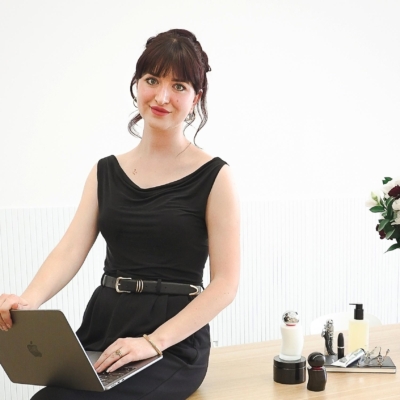
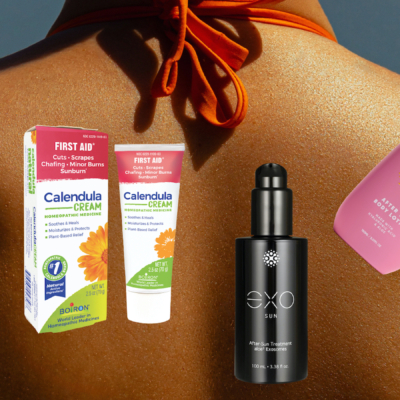
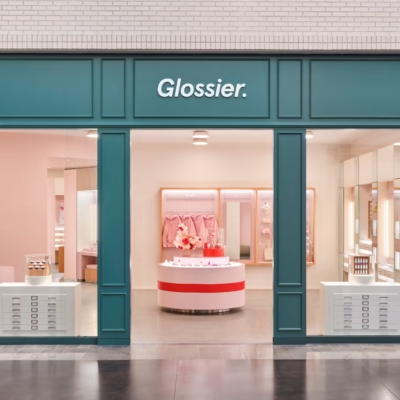
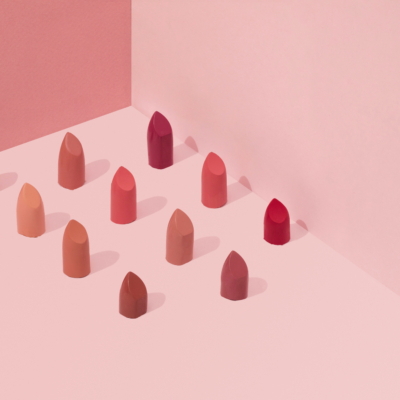
Leave a Reply
You must be logged in to post a comment.